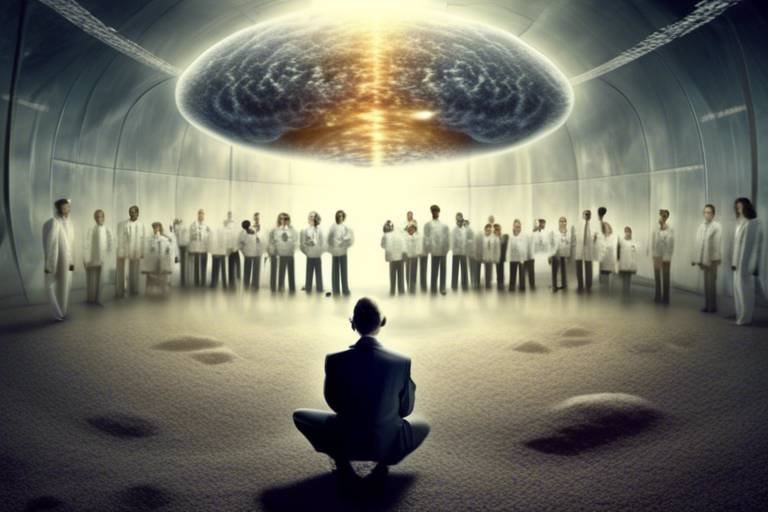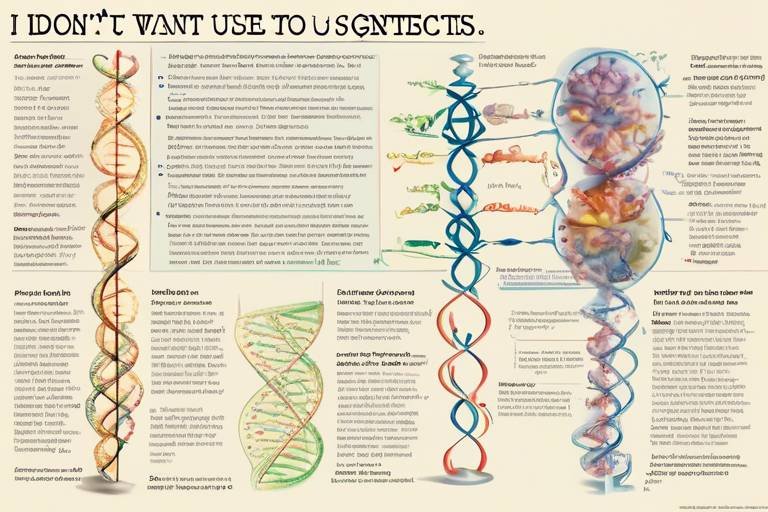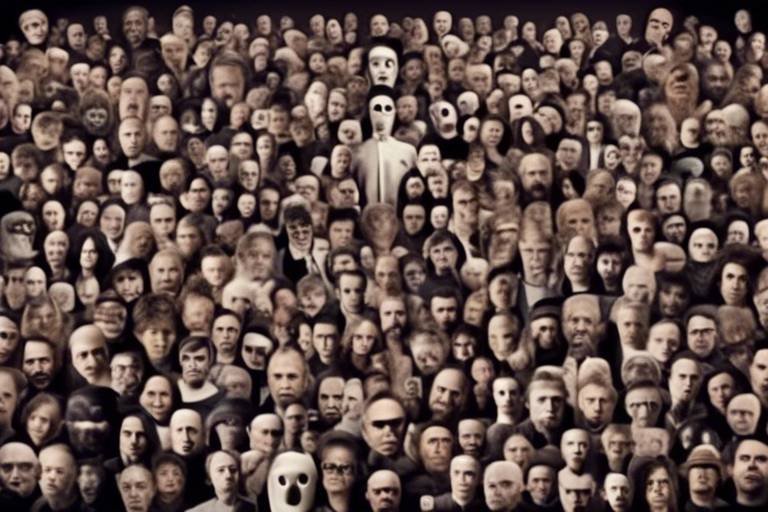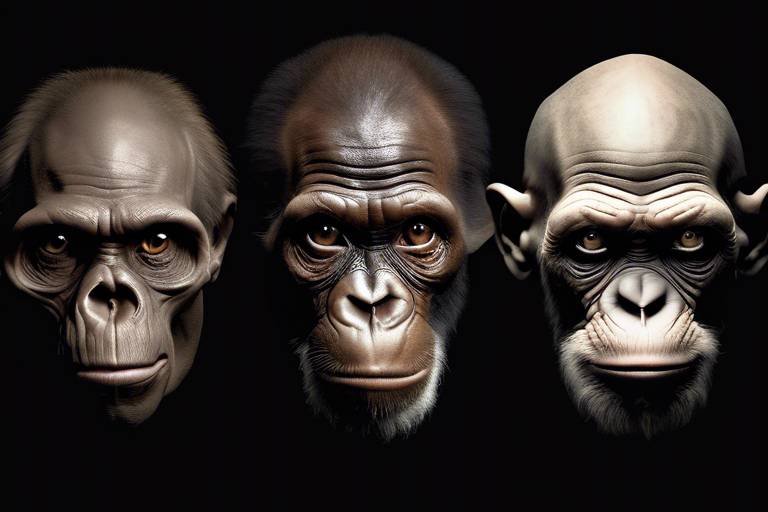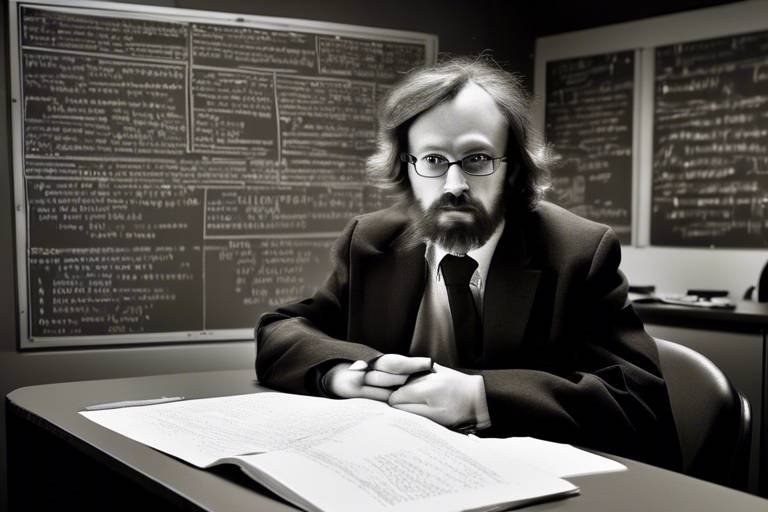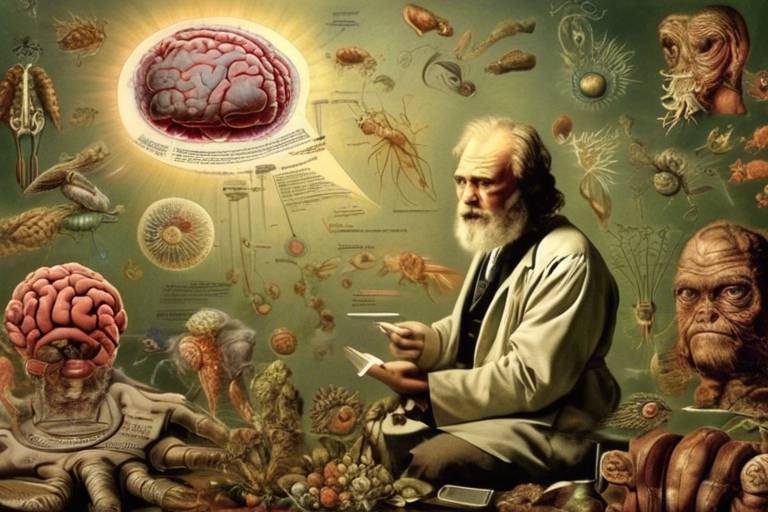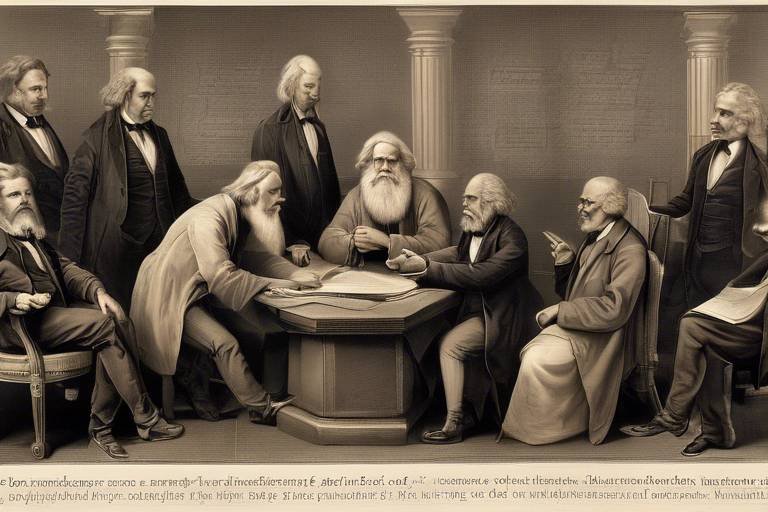Transcendental Idealism and Modern Science
Welcome to a fascinating exploration of transcendental idealism and its intriguing relationship with modern science. At first glance, philosophy and science may seem like distant realms, each with its own language and methodologies. However, when we dive deeper, we uncover a rich tapestry of ideas that interweave these two fields, shaping our understanding of reality and existence. This article aims to peel back the layers of this complex relationship, revealing how philosophical concepts influence scientific thought and, conversely, how scientific discoveries can challenge and refine our philosophical beliefs.
Transcendental idealism, primarily associated with the German philosopher Immanuel Kant, posits that our perception fundamentally shapes our reality. Imagine viewing the world through a unique lens—each experience colors your understanding of existence. This perspective challenges traditional notions of knowledge, suggesting that what we perceive is not merely a reflection of an objective reality, but rather a construct influenced by our senses and cognitive frameworks. As we navigate through this article, we will examine how these ideas resonate with contemporary scientific inquiries, particularly in fields like quantum mechanics and consciousness studies.
So, why does this matter? Understanding the interplay between transcendental idealism and modern science can enhance our grasp of both disciplines. It encourages us to question the assumptions we hold about the nature of reality and the limits of human understanding. As we embark on this journey, let’s explore the core principles of transcendental idealism and its implications for scientific inquiry, methodology, and the challenges that modern science faces.
At its heart, transcendental idealism posits that our experiences are shaped by the mind's inherent structures. Kant argued that while we can know phenomena—the things we experience—we cannot know noumena, or things-in-themselves. This distinction is crucial because it implies that our understanding of the universe is always mediated by our perceptions. Think of it this way: if reality is a painting, our perceptions are the frame through which we view it. This philosophy opens up a myriad of questions about the nature of existence, knowledge, and the limits of human cognition.
As we delve into the relationship between transcendental idealism and modern science, we will uncover how these philosophical concepts influence scientific practices and methodologies. The scientific method, often seen as a purely empirical endeavor, is also shaped by underlying philosophical assumptions about the nature of reality and knowledge. By examining these connections, we can gain a more nuanced understanding of both philosophy and science, recognizing that they are not mutually exclusive but rather complementary in the quest for knowledge.
Perception is not just a philosophical concept; it plays a pivotal role in the scientific process. Every scientific inquiry begins with observation, a subjective experience that is influenced by the observer's background, biases, and cognitive frameworks. This raises an essential question: how do our perceptions shape the data we collect and interpret? The connection between philosophy and empirical research becomes evident here. Scientists must acknowledge that their observations are filtered through their own experiences and mental models, which can lead to varying interpretations of the same data.
For instance, consider the phenomenon of quantum mechanics. At the quantum level, particles behave in ways that challenge our intuitive understanding of reality. The act of observation itself can influence the behavior of particles, leading to the famous observer effect. This intersection of perception and reality invites us to rethink our understanding of scientific inquiry. Are scientists merely passive observers, or do they play an active role in shaping the phenomena they study? This question echoes Kant's assertion that our understanding of the world is not a direct reflection of reality but rather a construct influenced by our perceptions.
Kant's ideas have significantly impacted scientific methodologies, particularly in the development of theories and practices. His emphasis on the role of the observer in shaping knowledge has led to a more reflexive approach in scientific inquiry. Scientists today are increasingly aware of the biases and assumptions that influence their work. This awareness fosters a culture of critical inquiry, where researchers question their own perceptions and strive for a more objective understanding of the phenomena they study.
However, Kant's approach is not without its critiques. Some argue that his framework imposes unnecessary limitations on scientific exploration. By suggesting that we can never truly know the noumena, critics contend that Kantian idealism may hinder the pursuit of objective knowledge. This debate is particularly relevant in the context of modern scientific advancements, where the lines between observer and observed continue to blur.
Despite these critiques, many contemporary scientists and philosophers have adapted Kantian principles to address current scientific challenges. By fostering a dialogue between philosophy and empirical research, they seek to bridge the gap between subjective experience and objective inquiry. This adaptation is crucial in navigating the complexities of modern science, where traditional boundaries are increasingly challenged.
Quantum mechanics serves as a prime example of how transcendental idealism intersects with scientific theories. The peculiarities of quantum behavior—where particles can exist in multiple states simultaneously until observed—raise profound questions about the nature of reality. Does the act of observation create reality, or does it merely reveal it? These questions echo Kant's ideas about the relationship between perception and existence, inviting us to reconsider our understanding of reality itself.
As we navigate the landscape of modern science, we encounter various philosophical challenges that transcend individual disciplines. Questions about the nature of consciousness, the limits of human understanding, and the implications of scientific discoveries on our worldview are at the forefront of contemporary debates. By examining these issues through the lens of transcendental idealism, we can gain valuable insights into the philosophical underpinnings of scientific inquiry.
Understanding consciousness remains one of the most profound challenges in both philosophy and neuroscience. Transcendental idealism informs contemporary debates surrounding consciousness by emphasizing the subjective nature of experience. How can we reconcile the subjective experience of consciousness with the objective methodologies of science? This question invites us to explore the limitations of our cognitive frameworks and the implications for our understanding of the mind.
The limitations of human cognition pose significant questions for science. Transcendental idealism suggests that our understanding of reality is inherently limited by our perceptions and cognitive capacities. This acknowledgment of our limitations is not a barrier but rather an invitation to explore further. By recognizing the boundaries of our understanding, we can approach scientific exploration with humility and curiosity, fostering a deeper appreciation for the mysteries of the universe.
- What is transcendental idealism? - It is a philosophical framework primarily associated with Immanuel Kant, suggesting that our perceptions shape our understanding of reality.
- How does transcendental idealism relate to modern science? - It influences scientific inquiry by highlighting the role of perception in shaping observations and data interpretation.
- What are the implications of quantum mechanics on transcendental idealism? - Quantum mechanics raises questions about the nature of reality and observation, aligning with Kantian ideas about the observer's role in shaping knowledge.
- What challenges does modern science face? - Challenges include understanding consciousness and the limits of human cognition, which can be examined through the lens of transcendental idealism.
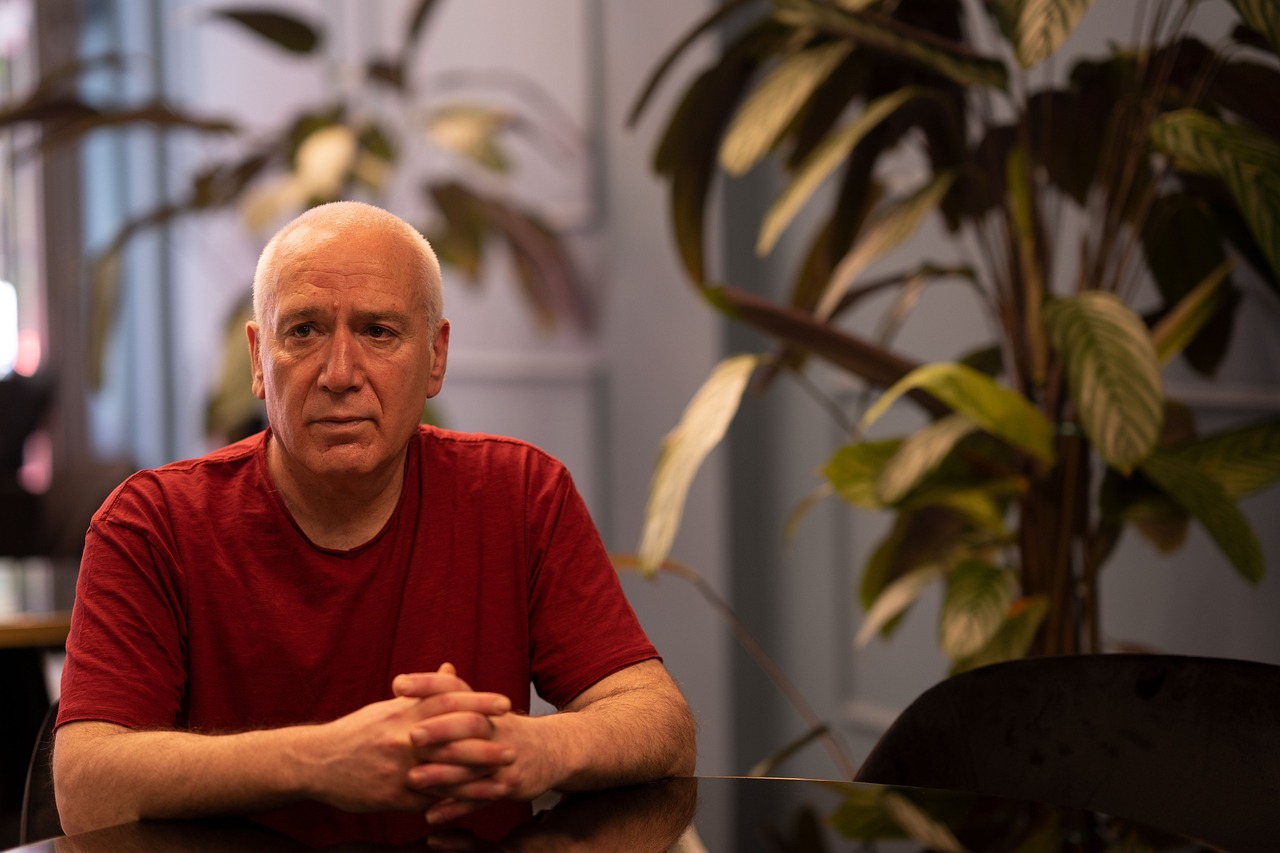
Understanding Transcendental Idealism
Transcendental idealism, a term coined by the renowned philosopher Immanuel Kant, serves as a fascinating lens through which we can examine the interplay between perception and reality. At its core, this philosophy posits that our understanding of the world is not merely a passive reflection of external reality, but rather an active construction shaped by our sensory experiences and cognitive faculties. In other words, what we perceive is not the objective world itself, but a version of it filtered through our mental frameworks. This idea challenges the traditional notion that reality exists independently of our perceptions, and it opens up a Pandora's box of questions about the nature of existence and knowledge.
Kant's transcendental idealism can be broken down into several key principles that are essential for grasping its implications:
- Phenomena vs. Noumena: Kant distinguishes between phenomena (the world as we experience it) and noumena (the world as it is in itself). This distinction is crucial because it suggests that while we can know phenomena through our senses, noumena remain fundamentally inaccessible to us.
- A Priori Knowledge: Kant argues that certain concepts and knowledge are innate and not derived from experience. For instance, our understanding of space and time is not learned but is a foundational structure through which we interpret experiences.
- Categories of Understanding: He proposed that our minds possess inherent categories that shape our experiences, such as causality and unity. These categories help us make sense of the chaotic influx of sensory data.
By asserting that our perceptions actively construct our understanding of reality, transcendental idealism invites us to reconsider the very fabric of scientific inquiry. What does it mean for our observations to be colored by our subjective experiences? This philosophical framework suggests that scientific observations cannot be entirely objective, as they are inevitably influenced by the observer's mental state and prior knowledge. Thus, the relationship between the observer and the observed becomes a dynamic dance, where each step influences the other.
Moreover, Kant's ideas challenge the idea of absolute knowledge. If our perceptions shape reality, then what does it mean to claim that we "know" something? This philosophical inquiry leads to a deeper understanding of the limitations of human cognition and the complexities of scientific exploration. As we delve deeper into this intricate relationship, we find ourselves navigating through a landscape where philosophy and science converge, each enriching the other in profound ways.
In summary, understanding transcendental idealism is not just an academic exercise; it's an invitation to explore the very nature of existence and knowledge. By recognizing that our perceptions shape our reality, we can approach scientific inquiry with a more nuanced perspective, one that acknowledges the intricate interplay between the observer and the observed. This realization not only enriches our understanding of science but also encourages a more profound appreciation for the philosophical questions that underpin our quest for knowledge.

The Role of Perception in Science
When we think about science, we often imagine a world governed by objective truths and measurable phenomena. However, the reality is much more nuanced. Perception plays a vital role in shaping our understanding of scientific observations. It’s like wearing glasses that tint everything we see; our perceptions can either clarify or distort the reality we are trying to grasp. This interplay between perception and science raises intriguing questions: How do our subjective experiences affect the data we gather? How do biases influence the conclusions we draw?
At its core, science is about observation and interpretation. But what happens when the observer is influenced by their own experiences, beliefs, and emotions? For instance, two scientists might observe the same phenomenon but interpret it differently based on their unique backgrounds and perspectives. This subjectivity can lead to a variety of interpretations, which is why it's essential to recognize the role of perception in scientific inquiry. Understanding this relationship can significantly enhance our approach to research and data interpretation.
To illustrate this point, consider the following examples of how perception influences scientific practice:
- Data Interpretation: Scientists often rely on statistical models to interpret data. However, the assumptions underlying these models can be influenced by the researchers' perceptions, leading to different conclusions.
- Experimental Design: The way experiments are designed reflects the researchers' perceptions of what is essential. This can impact the variables they choose to study and how they measure them.
- Peer Review: The peer review process is another area where perception comes into play. Reviewers may have biases based on their own experiences, which can affect the acceptance or rejection of scientific papers.
Moreover, the subjective nature of perception can lead to the phenomenon known as the observer effect in physics, particularly in quantum mechanics. This concept suggests that the act of observation can alter the state of what is being observed, blurring the line between objective reality and subjective experience. This raises profound questions: If our perceptions can change the outcome of an experiment, how can we trust our observations? Are we merely shaping reality through our perceptions?
Ultimately, the role of perception in science is a double-edged sword. On one hand, it enriches our understanding by allowing for diverse interpretations and insights. On the other hand, it poses challenges that must be navigated carefully. Scientists must strive to remain aware of their biases and the limitations of their perceptions. By acknowledging these factors, they can work towards more accurate and reliable scientific conclusions.
As we delve deeper into the relationship between perception and science, it becomes clear that a collaborative approach—where diverse perspectives are valued—can lead to a more robust scientific discourse. In this way, perception is not just a hindrance but a vital component of scientific exploration that can lead to richer, more comprehensive understandings of the world around us.
- How does perception affect scientific research? Perception influences how scientists interpret data, design experiments, and evaluate results. It can lead to different conclusions based on individual biases and experiences.
- What is the observer effect? The observer effect refers to changes that the act of observation can make on a phenomenon being observed, particularly in quantum mechanics.
- Can we eliminate bias in scientific studies? While it’s challenging to eliminate bias entirely, scientists can use methods such as blind studies and peer reviews to minimize its impact.

Kant's Influence on Scientific Methodology
Immanuel Kant's philosophical insights have profoundly shaped the landscape of scientific methodology, creating a bridge between empirical observation and theoretical understanding. At the heart of Kant's philosophy is the idea that our experiences are not merely passive receptions of stimuli but are actively constructed by our minds. This notion fundamentally challenges the traditional view of science as an objective pursuit, suggesting instead that our perceptions and interpretations play a critical role in shaping our understanding of reality.
Kant proposed that human cognition is structured by certain categories and concepts, which he termed "a priori" conditions. These conditions are essential for making sense of our experiences and are not derived from experience itself. This perspective has influenced scientists to recognize that their observations are also filtered through their cognitive frameworks. For instance, when scientists formulate hypotheses or interpret experimental data, they are not just observing the world; they are also engaging with it through the lens of their pre-existing knowledge and conceptual tools.
One of the most significant impacts of Kant's philosophy on scientific methodology is the emphasis on the importance of a systematic approach to inquiry. Kant advocated for a structured method of investigation that involves:
- Formulating clear hypotheses based on existing knowledge
- Conducting experiments that are designed to test these hypotheses rigorously
- Analyzing data with an awareness of the cognitive biases that may influence interpretation
- Revising theories in light of new evidence, maintaining a dynamic relationship between theory and observation
This structured approach has become a hallmark of modern scientific practice, promoting the idea that theories must be continually tested and refined. Scientists today are encouraged to adopt a critical stance toward their own assumptions, echoing Kant's call for self-reflection in the pursuit of knowledge. In this way, Kant's influence extends beyond mere philosophical discourse; it has tangible implications for how scientific research is conducted.
Moreover, Kant's insistence on the limits of human understanding has led to a more cautious and humble approach in science. His assertion that our knowledge is constrained by our cognitive faculties encourages scientists to acknowledge the potential gaps in their understanding and the provisional nature of their conclusions. This humility is especially relevant in fields such as quantum mechanics, where the nature of reality often defies intuitive comprehension.
In summary, Kant's influence on scientific methodology is both profound and enduring. By intertwining the realms of philosophy and science, he has encouraged a more reflective, systematic, and critical approach to the pursuit of knowledge. As scientists continue to grapple with complex questions about reality, consciousness, and the nature of existence, Kant's insights remain a guiding force, reminding us that our understanding is shaped by both our experiences and our cognitive frameworks.

Critiques of Kantian Science
Immanuel Kant's philosophical framework has undeniably shaped the landscape of modern science, yet it has not escaped scrutiny. Critics argue that Kant's approach, while revolutionary, is also fraught with limitations that can hinder scientific progress. One major critique is the notion that our perceptions are the ultimate arbiters of reality. This idealistic view suggests that we can never truly know the 'thing-in-itself'—the reality independent of our perceptions. This leads to the question: if our understanding is so inherently subjective, how can we trust our scientific observations to reflect an objective reality?
Furthermore, many philosophers and scientists contend that Kant’s strict separation of phenomena (the world as we perceive it) and noumena (the world as it exists independently) creates a false dichotomy. In practical terms, this separation can lead to a disconnect between scientific inquiry and the underlying reality that scientists are trying to understand. Critics argue that this separation may limit the scope of scientific exploration, as it implies that some aspects of reality are fundamentally inaccessible to human understanding.
Additionally, the reliance on a priori knowledge—knowledge that exists independently of experience—has been challenged in light of contemporary scientific advancements. Many argue that empirical evidence should take precedence over philosophical speculation. For instance, the rise of data-driven science and the emphasis on observable phenomena push back against Kant's idea that our cognitive frameworks shape our understanding of the world. Critics assert that science should not be constrained by philosophical doctrines that prioritize perception over empirical evidence.
Moreover, the implications of Kantian science have also been scrutinized in the context of the scientific method. Some scholars argue that Kant's framework may lead to an overly rigid interpretation of scientific laws and theories, potentially stifling creativity and innovation. The scientific method thrives on adaptability and the willingness to revise theories in light of new evidence, a process that seems at odds with Kant's insistence on the primacy of our cognitive structures.
In summary, while Kant's contributions to philosophy and science are immense, the critiques against his ideas highlight significant concerns regarding the nature of perception, the separation of phenomena and noumena, and the implications for scientific methodology. These discussions not only enrich our understanding of Kantian science but also invite us to consider how philosophical frameworks can both illuminate and obscure the pursuit of scientific knowledge.
- What is Kant's main argument in transcendental idealism?
Kant argues that our understanding of reality is shaped by our perceptions and cognitive structures, suggesting that we can never fully grasp the reality that exists independently of our experiences. - How does Kantian philosophy impact modern science?
Kantian philosophy has influenced scientific methodologies by emphasizing the role of perception and the limitations of human understanding in interpreting empirical data. - What are some criticisms of Kantian science?
Critics argue that Kant's separation of phenomena and noumena creates a disconnect in scientific inquiry and that reliance on a priori knowledge limits the scope of empirical research. - Can Kant's ideas be reconciled with modern scientific practices?
Many contemporary philosophers and scientists attempt to adapt Kantian principles to current challenges, fostering a dialogue between philosophy and empirical research.

Modern Adaptations of Kant's Philosophy
Kant's philosophy, particularly his ideas surrounding transcendental idealism, has not only stood the test of time but has also evolved in fascinating ways to meet the challenges posed by modern science. In today’s world, where technology and scientific inquiry are advancing at breakneck speed, Kant's core principles are being revisited and adapted by contemporary thinkers. This adaptation manifests in various fields, including physics, cognitive science, and even artificial intelligence.
One of the most notable adaptations is the way Kant's emphasis on the limits of human perception has influenced modern epistemology. In a world inundated with data, understanding how we interpret this information is crucial. For instance, the rise of big data analytics in scientific research echoes Kant's assertion that our understanding of reality is mediated by our perceptions. Scientists today are increasingly aware that their observations are not merely passive receptions of external stimuli but are shaped by their theoretical frameworks and prior knowledge. This realization encourages a more reflective approach to scientific inquiry, where the observer's role is acknowledged rather than ignored.
Furthermore, modern physicists have begun to explore the implications of Kant's ideas in light of quantum mechanics. Quantum theory challenges classical notions of reality, suggesting that the act of observation can fundamentally alter the state of what is being observed. This notion resonates with Kant's belief that our understanding of the world is not just a mirror reflecting reality but is actively involved in shaping it. As such, contemporary discussions around quantum entanglement and the observer effect can be seen as a modern reinterpretation of Kantian thought, where the boundaries between the observer and the observed blur, leading to profound philosophical questions about the nature of reality itself.
Additionally, the integration of Kantian philosophy into cognitive science has sparked significant dialogue about consciousness and perception. Researchers are increasingly examining how our cognitive processes influence our understanding of the world. This intersection of philosophy and neuroscience brings forth questions about whether consciousness is merely a byproduct of neural activity or if it plays a more active role in shaping our experiences. Kant's assertion that our experiences are structured by innate categories of understanding provides a valuable framework for exploring these complex issues.
In the realm of artificial intelligence, Kant's ideas are also finding relevance. As AI systems become more sophisticated, questions arise about the nature of understanding and cognition in machines. Are these systems capable of true understanding, or are they simply processing data without any genuine perception? This dilemma echoes Kant's distinction between noumena (things-in-themselves) and phenomena (things as we perceive them). The philosophical implications of AI challenge us to reconsider the nature of intelligence and the limits of machine perception, pushing the boundaries of Kant's original ideas into the future.
In conclusion, the modern adaptations of Kant's philosophy reveal a vibrant dialogue between historical thought and contemporary scientific challenges. By revisiting and reinterpreting his ideas, scholars and scientists are not only enriching our understanding of Kant but are also paving the way for new insights into the nature of reality, consciousness, and the limits of human understanding. This ongoing interplay between philosophy and science underscores the timeless relevance of Kant's work and its potential to illuminate the complexities of our modern world.
- What is transcendental idealism?
Transcendental idealism is a philosophical theory developed by Immanuel Kant, suggesting that our perception shapes our understanding of reality. It posits that while we can know the world as it appears to us (phenomena), the true nature of things (noumena) remains beyond our grasp.
- How does Kant's philosophy influence modern science?
Kant's philosophy has influenced modern science by highlighting the role of perception in understanding reality, encouraging scientists to reflect on their observations and the frameworks that guide them.
- What is the relationship between Kantian philosophy and quantum mechanics?
Kantian philosophy intersects with quantum mechanics in that both challenge traditional notions of reality and emphasize the role of the observer in shaping what is perceived.
- How does Kant's philosophy relate to consciousness studies?
Kant's ideas inform contemporary debates on consciousness by suggesting that our experiences are structured by innate cognitive frameworks, which researchers are exploring in neuroscience.

Implications for Quantum Mechanics
When we dive into the mysterious world of quantum mechanics, we encounter a realm that challenges our traditional understanding of reality. At the heart of this discussion lies the profound influence of transcendental idealism, a philosophy that suggests our perceptions shape the very fabric of reality. In quantum mechanics, this idea finds a fascinating intersection, especially when we consider phenomena like superposition and entanglement.
To illustrate, think about how a particle can exist in multiple states at once until it is observed. This concept aligns with Kant's assertion that knowledge is not merely a passive reflection of the external world but is actively constructed by our perceptions. In quantum experiments, the act of measurement seems to collapse a particle's potential states into a single reality. This raises an intriguing question: Is reality contingent upon our observation? Just as Kant proposed that our understanding of the world is filtered through our senses, quantum mechanics suggests that our observations can influence the state of physical systems.
Furthermore, the philosophical implications extend to the nature of causality itself. In classical physics, events follow a linear cause-and-effect chain, but quantum mechanics introduces a level of unpredictability that Kantian philosophy can help us navigate. If we accept that our perception shapes reality, we must also consider how this perception interacts with the inherent uncertainties of quantum systems. This interplay can lead to a more nuanced understanding of causality, where outcomes are not strictly determined but are influenced by the observer's engagement with the system.
Moreover, the concept of entanglement presents a compelling challenge to our traditional views of separateness and locality. When two particles become entangled, the state of one instantaneously affects the state of another, regardless of the distance separating them. This phenomenon suggests a profound interconnectedness that resonates with Kant's idea that our understanding of the world is not isolated but interconnected through our perceptions. In this light, the quantum realm can be seen as a manifestation of a deeper, more intricate reality that transcends our immediate experiences.
In summary, the implications of transcendental idealism for quantum mechanics are both profound and complex. They challenge us to reconsider the nature of reality and our role in shaping it. As we continue to explore these ideas, we find ourselves at the intersection of philosophy and science, where the boundaries of knowledge blur and new insights emerge. The dialogue between these fields not only enriches our understanding of quantum mechanics but also invites us to reflect on the very nature of existence itself.
- What is transcendental idealism? - Transcendental idealism is a philosophical theory developed by Immanuel Kant, which posits that our understanding of reality is shaped by our perceptions and experiences.
- How does transcendental idealism relate to quantum mechanics? - It suggests that reality may be influenced by observation, paralleling quantum phenomena where the act of measurement affects the state of particles.
- What are superposition and entanglement? - Superposition refers to a particle's ability to exist in multiple states simultaneously, while entanglement describes a connection between particles that allows them to affect each other instantaneously over distances.
- Can transcendental idealism help us understand consciousness? - Yes, it provides a framework for exploring how our perceptions shape our understanding of consciousness and reality.

Philosophical Challenges in Modern Science
Modern science, while a beacon of progress and innovation, is not without its philosophical challenges. At the heart of these challenges lies the quest to understand the fundamental nature of reality, consciousness, and the limits of human cognition. As we dive deeper into the scientific realm, questions arise that challenge our very understanding of existence. How do we reconcile the objective nature of scientific inquiry with the subjective experiences that shape our perceptions? This interplay between science and philosophy is crucial, as it not only influences our interpretations of scientific data but also shapes the trajectory of future discoveries.
One of the most pressing philosophical challenges in modern science is the nature of consciousness. Despite significant advancements in neuroscience, the question of how consciousness arises from the brain remains largely unanswered. Transcendental idealism offers a unique perspective on this issue, suggesting that our understanding of consciousness is inherently tied to our perceptions and experiences. According to this view, consciousness is not merely a byproduct of neural processes but a fundamental aspect of our interaction with reality. This perspective invites us to consider whether consciousness can be fully explained through empirical methods, or if it transcends the limits of scientific inquiry.
Moreover, the limits of human understanding pose another significant philosophical challenge. As scientists push the boundaries of knowledge, they often encounter phenomena that defy conventional explanations. For instance, in the realm of quantum mechanics, particles behave in ways that challenge our intuitive grasp of reality. Here, transcendental idealism becomes particularly relevant, as it emphasizes that our cognitive frameworks may not be equipped to fully comprehend the complexities of the universe. This raises profound questions: Are there aspects of reality that exist beyond our capacity to understand? Can science ever provide a complete picture of the universe, or are there inherent limitations to human cognition?
In light of these challenges, it becomes evident that a dialogue between philosophy and science is essential. Philosophers can help scientists articulate the implications of their findings, while scientists can provide empirical evidence to inform philosophical debates. This symbiotic relationship can lead to a more nuanced understanding of the questions that lie at the intersection of these fields. For example, discussions surrounding the implications of artificial intelligence and machine learning can benefit from philosophical insights into ethics, consciousness, and identity.
Ultimately, as we navigate the philosophical challenges in modern science, we must remain open to the idea that our understanding of reality is continually evolving. Just as science challenges our preconceptions, philosophy encourages us to reflect on the implications of scientific advancements. By embracing this interplay, we can foster a more holistic approach to knowledge that honors both empirical evidence and the rich tapestry of human experience.
- What is transcendental idealism? - It is a philosophical concept primarily associated with Immanuel Kant, suggesting that our perceptions shape our understanding of reality.
- How does consciousness relate to science? - Consciousness poses a significant challenge in science, as its origins and nature remain largely unexplained, raising questions about the limits of scientific inquiry.
- Can philosophy and science coexist? - Yes, the dialogue between philosophy and science is essential for a comprehensive understanding of complex issues, such as consciousness and ethical considerations in scientific advancements.

The Nature of Consciousness
Understanding consciousness is one of the most profound challenges in both philosophy and neuroscience. It's like trying to catch smoke with your bare hands—no matter how hard you try, it slips away just when you think you have it. Consciousness is not merely a byproduct of brain activity; it's a complex tapestry woven from our experiences, perceptions, and interpretations of reality. This intricate interplay raises critical questions: What is consciousness? Where does it come from? And how does it relate to our understanding of the universe?
Transcendental idealism, particularly as articulated by Immanuel Kant, offers a unique lens through which we can explore these questions. Kant argued that our perceptions shape our understanding of reality, suggesting that consciousness is not just a passive receiver of information but an active participant in constructing our experience of the world. In this framework, consciousness becomes a dynamic process, influenced by both internal mental states and external stimuli.
To further illustrate this, consider the following aspects of consciousness as influenced by transcendental idealism:
- Subjective Experience: Each person's consciousness is shaped by their unique experiences, beliefs, and perceptions. This subjectivity means that two individuals can perceive the same event in entirely different ways, which challenges the notion of a single, objective reality.
- Active Construction: Our minds do not merely reflect the external world; they actively construct it. This means that what we perceive is influenced by our mental frameworks, leading to a reality that is co-created by the observer.
- Limits of Understanding: Kant posited that there are inherent limits to human understanding. This idea suggests that there may be aspects of consciousness and reality that remain forever beyond our grasp, highlighting the complexity of our cognitive faculties.
The implications of these ideas are vast. They challenge us to reconsider the nature of reality itself and our place within it. For instance, in the realm of neuroscience, researchers are increasingly recognizing that consciousness is not merely a product of neural activity but is intricately linked to our perceptions and interpretations. This shift in understanding invites a more holistic view of consciousness, one that incorporates both the biological and the philosophical.
Moreover, the intersection of transcendental idealism and consciousness raises intriguing questions about artificial intelligence and machine consciousness. As we develop more sophisticated AI systems, we must ask ourselves: Can machines ever achieve a form of consciousness? If consciousness is fundamentally tied to perception and subjective experience, can a machine, devoid of human-like experiences, ever truly understand or replicate consciousness?
In essence, the nature of consciousness remains a tantalizing enigma. It invites us to explore the depths of our own minds while simultaneously questioning the very fabric of reality. As we continue to delve into this mystery, we find that transcendental idealism not only enriches our understanding of consciousness but also serves as a bridge between philosophy and science, urging us to reconsider the boundaries of human knowledge.
- What is consciousness? Consciousness is the state of being aware of and able to think about one's own existence, thoughts, and surroundings.
- How does transcendental idealism relate to consciousness? Transcendental idealism posits that our perceptions shape our understanding of reality, suggesting that consciousness is an active process influenced by our experiences.
- Can machines achieve consciousness? The debate continues, but many argue that without subjective experiences, machines cannot achieve true consciousness.
- What are the limits of human understanding? Kant argued that there are inherent limits to what humans can comprehend, suggesting that some aspects of reality may remain beyond our grasp.
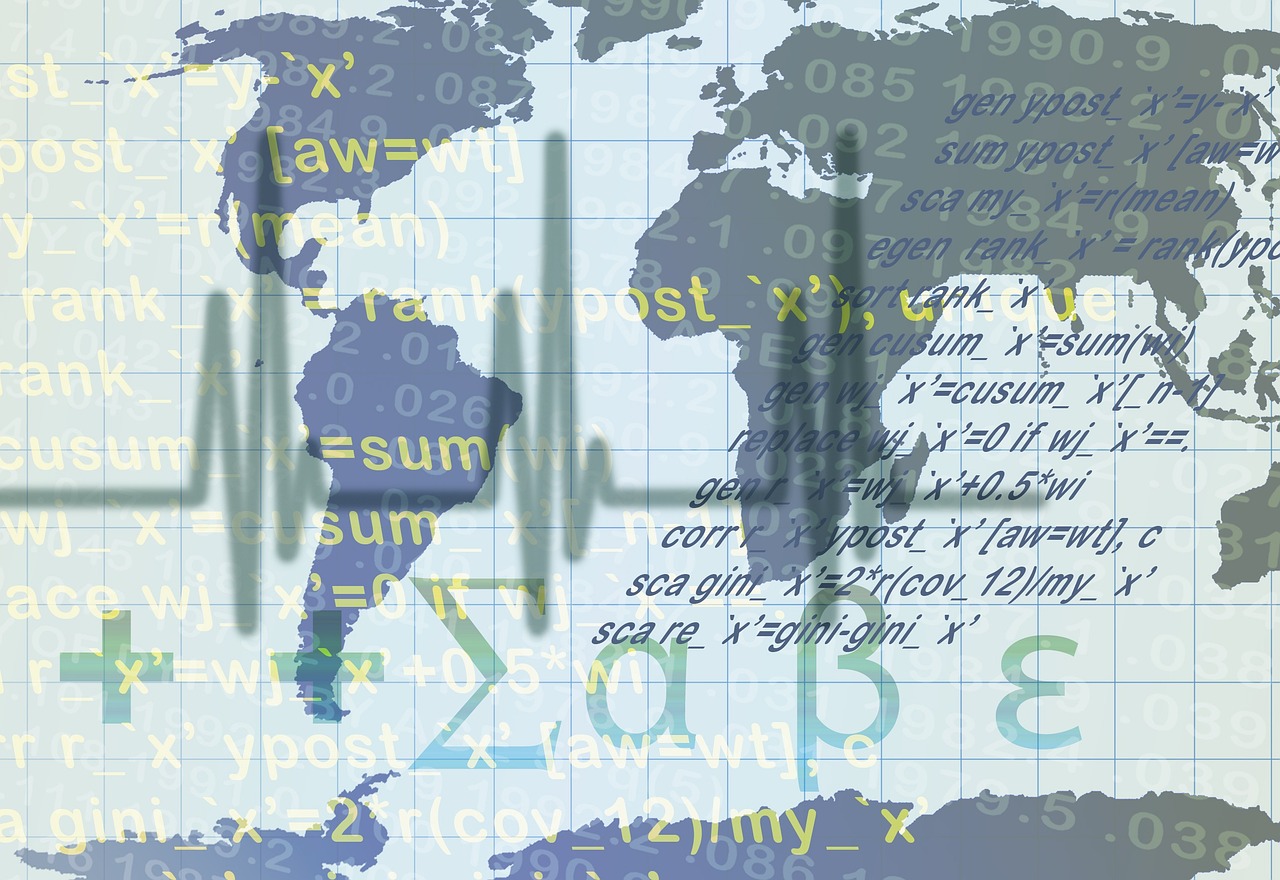
Limits of Human Understanding
The have long been a topic of intrigue and debate among philosophers, scientists, and curious minds alike. At the heart of this discussion is the question: how much can we truly know? In a world brimming with complexity, our cognitive faculties often feel like a tiny flashlight illuminating just a fraction of a vast, dark room. This metaphor captures the essence of our struggle; while we strive to uncover the mysteries of the universe, we are perpetually aware that our perceptions and interpretations are constrained by our inherent limitations.
Transcendental idealism, particularly as articulated by Kant, offers a unique perspective on these limitations. Kant argued that our understanding is shaped by the frameworks through which we perceive reality. In other words, we don't just passively observe the world; we actively construct our understanding based on our experiences and the categories of thought available to us. This leads to an intriguing implication: if our perceptions are limited, then so too is our understanding of the universe itself. For instance, consider how different cultures interpret the same natural phenomenon. What one culture sees as a scientific event, another might perceive as a spiritual experience. These differing interpretations highlight the subjective nature of human understanding.
Moreover, the rapid advancements in science often outpace our ability to comprehend their implications fully. Take quantum mechanics, for example. It challenges our classical intuitions about reality. The notion that particles can exist in multiple states at once or that they can be entangled across vast distances defies our conventional understanding of causality and locality. As we delve deeper into the quantum realm, we confront the limits of our cognitive frameworks. Here, transcendental idealism plays a critical role by reminding us that our scientific models are not mere reflections of reality but rather constructs shaped by our perceptual and conceptual limitations.
To illustrate this further, let's consider some key areas where the limits of human understanding manifest:
- Complexity of Nature: The natural world operates on principles that often elude our comprehension. From the intricacies of ecosystems to the vastness of cosmic structures, we are constantly grappling with complexities that challenge our cognitive capacities.
- Subjectivity of Experience: Each individual's perception is colored by personal experiences, cultural background, and emotional states. This subjectivity can lead to vastly different interpretations of the same event or phenomenon.
- Technological Limitations: While technology has expanded our ability to observe and measure, it still operates within the confines of human design and understanding, which can introduce biases and errors in data interpretation.
In conclusion, the limits of human understanding are not merely obstacles; they are also gateways to deeper inquiry and exploration. By recognizing these limits, we open ourselves to a more profound appreciation of the mysteries that lie beyond our current grasp. Transcendental idealism encourages us to embrace this uncertainty, fostering a sense of humility in our quest for knowledge. After all, the journey of understanding is as significant as the destination itself, and it is through the acknowledgment of our limitations that we can continue to seek new horizons in both science and philosophy.
- What is transcendental idealism?
Transcendental idealism is a philosophical theory developed by Immanuel Kant that suggests our understanding of reality is shaped by our perceptions and cognitive frameworks. - How does transcendental idealism relate to modern science?
It influences scientific inquiry by highlighting the role of perception in observations and interpretations, suggesting that our scientific models are shaped by our inherent limitations. - What are some examples of limits in human understanding?
Examples include the complexity of natural systems, the subjectivity of individual experiences, and the constraints imposed by technological tools.
Frequently Asked Questions
- What is transcendental idealism?
Transcendental idealism is a philosophical theory primarily associated with Immanuel Kant. It suggests that our perception shapes what we consider reality. In other words, the way we experience the world influences our understanding of existence and knowledge.
- How does perception affect scientific inquiry?
Perception plays a vital role in scientific inquiry as it influences how scientists observe and interpret data. Our subjective experiences can shape what we see and how we understand phenomena, highlighting the connection between philosophical concepts and empirical research.
- What impact did Kant have on scientific methodologies?
Kant's ideas significantly influenced the development of scientific methodologies. His philosophical framework encouraged scientists to consider the role of perception and cognition in their work, leading to a more nuanced understanding of scientific theories and practices.
- Are there critiques of Kantian science?
Yes, Kant's approach has faced various criticisms. Some argue that his ideas may limit scientific exploration by imposing constraints on what can be known. These critiques highlight the ongoing debate about the implications of his philosophy for modern scientific thought.
- How have modern scientists adapted Kant's philosophy?
Contemporary scientists and philosophers have adapted Kantian principles to tackle current scientific challenges. This adaptation fosters a dialogue between philosophy and empirical research, allowing for new insights and perspectives in understanding complex scientific issues.
- What is the relationship between transcendental idealism and quantum mechanics?
Transcendental idealism intersects with quantum mechanics by raising questions about reality and observation. It suggests that our understanding of reality may be influenced by the act of observation, which aligns with some interpretations of quantum theory.
- What philosophical challenges does modern science face?
Modern science encounters various philosophical challenges, such as the nature of consciousness and the limits of human understanding. These issues are explored through the lens of transcendental idealism, which offers insights into how we perceive and comprehend the world.
- How does transcendental idealism inform debates about consciousness?
Transcendental idealism informs contemporary debates surrounding consciousness by emphasizing the role of perception in shaping our understanding of conscious experiences. This perspective encourages a deeper exploration of the relationship between consciousness, philosophy, and neuroscience.
- What are the limits of human understanding in science?
The limits of human cognition pose significant questions for scientific exploration. Transcendental idealism addresses these limits by suggesting that our understanding of reality is inherently shaped by our perceptual capabilities, prompting scientists to consider the boundaries of knowledge.

